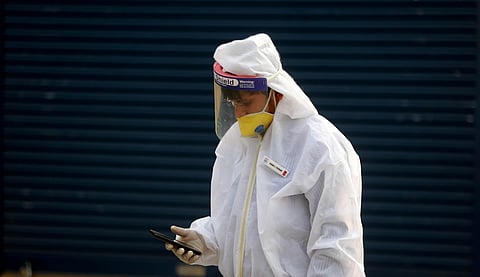

NEW DELHI: India can use the National Family Health Survey (NFHS) as a population surveillance strategy for COVID-19 to obtain the true prevalence of coronavirus in the population, said an analysis in the Lancet Global Health.
In the absence of universal testing, it says, a random sample-based population surveillance framework is urgently needed in middle-income countries such as India, which cannot absorb the socioeconomic and public health fallout resulting from national shutdowns.
The NFHS has been providing reliable estimates of various population, health, and nutrition indicators for more than 25 years, K S James, International Institute for Population Sciences, Mumbai and S V Subramanian, Professor of Population Health and Geography, Harvard University say in the analysis.
“Layering a COVID-19 focused data-collection effort onto the NFHS infrastructure would keep operational costs low,” they said.
Under a scenario of 0•5 per cent prevalence, the analysis projected a sample of about 3,000 individuals to be tested and the minimum required sample size increases to just over 15,000 under a rarer scenario of 0•1 per cent prevalence and decreases to about 1,500 if the anticipated prevalence is 1 per cent.
“Should the anticipated prevalence of COVID-19 be any higher than 1 per cent, the minimum sample size needed to reliably estimate the true prevalence would be smaller and, therefore, fewer resources would be needed,” it said.